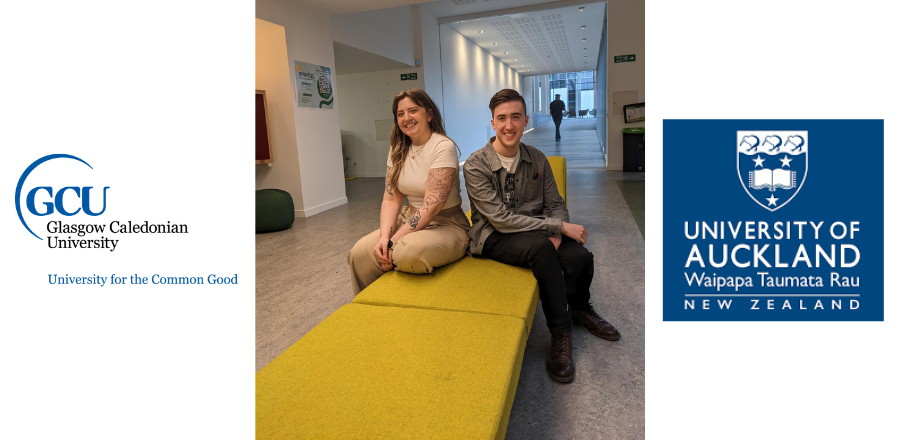The importance of developing cultural competence within healthcare

GCU BSc (Hons) Diagnostic Imaging students recently teamed up with students from The University of Auckland to reflect on health inequalities in Scotland and New Zealand.
The Collaborative Online International Learning Seminar took place via Zoom on the 2nd of March and gave both sets of students the chance to reflect on life as student radiographers in their respective countries.
Andrea Marshall, Jared Hepburn, Sophie Black and Catherine Mackay all represented GCU at the event, which was co-organised by lecturer Louise McKendrick.
Students from both Universities were tasked with delivering a short presentation on a health inequality of their choice, with Andrea, Jared, Sophie and Catherine opting to focus on the stigma against people who use drugs in Scotland. Their counterparts at The University of Auckland turned their attention to the Māori indigenous population within New Zealand.
We caught up with Andrea and Jared to hear all about it:
How did this opportunity come about?
Andrea: “Louise McKendrick came to me at the end of third year and said she was in talks with The University of Auckland and really wanted to promote a specific population in Scotland along with the health inequalities they face. In New Zealand, there’s the Māori and non- Māori population, but we didn’t really have anything that different in Scotland in terms of one religion or race.
“We decided to go with drug users and how they are unfairly treated within the health system. Louise and I both have personal connections to that side of things, I’ve got family who have been part of that population and have unfortunately received some really horrible health outcomes from it.”
Jared, why did you want to get involved?
Jared: “I thought it was really interesting because it wasn’t like the other volunteering opportunities we’re offered. This gave us the chance to actually speak with other students studying the course, and obviously the fact it was New Zealand was pretty cool and completely different – especially given the fact I didn’t know anything about the Māori population.”
How beneficial was the experience at this point in your career?
Andrea: “It really helps, particularly given the pandemic meant we couldn’t go on our elective placements – mine was actually meant to be New Zealand! It gave me the chance to imagine I was there and allowed me to learn about the different scenarios I would have maybe experienced.”
What did your presentation specifically focus on?
Andrea: “We were given five to ten minutes so it was quite hard to narrow down specifically what we wanted to get across. We wanted to focus on people who use drugs and how the issues they were coming to hospital with were the same as anyone else. The difference is that sometimes it’s actually written on their admission card that the patient uses drugs, which almost provides a stereotype about someone that we don’t actually need to know about.
“Our presentation was about focusing how we can change future professionals outlook on people that use drugs. That relates to things like not using derogative terminology that we all hear every single day and using the phrase ‘people who use drugs’, rather than the word ‘addict’.”
What did you take away from the presentation by the students from University of Auckland?
Jared: “It made me realise that we should probably have the same respect that they have in terms of developing cultural competence. Drug use is obviously particularly bad in Scotland so we should focus on it with a more open mind rather than having a stigma attached.
“It’s mandatory that you have to be culturally competent in dealing with the Māori population in New Zealand – students have to complete a six-week course in order to practice. There’s obviously nothing like that here, so that was very interesting.”
Andrea: “A lot of the Māori population live in rural areas and don’t have the same access to hospitals. The University of Auckland’s presentation was more positive overall and focused on how New Zealand learned from their past to help the Maori population. Our presentation more looked at how drug users are viewed negatively and how we should actually look at them with more respect.”
Andrea, changing the perspective of people who use drugs is something you are very passionate about, isn’t it?
Andrea: “Definitely! Even as a student it has been something I’ve been particularly strong about. I do get upset when people don’t treat people equally or give them the same patient care.
“I think this seminar and hearing about the Maori population has helped underline the importance of supporting these people who are unfortunately in this situation. I want to try and create a culture change and help develop a more positive environment for people who use drugs.”
By Ross Clark
Got an SHLS or GSBS story? Email me at Ross.Clark@gcu.ac.uk or message me on Twitter
